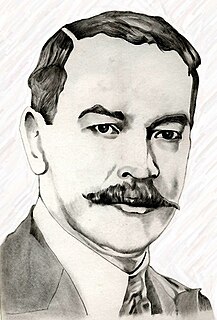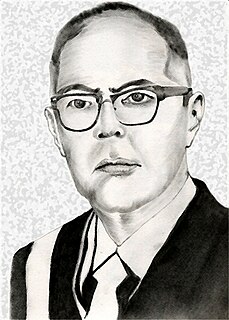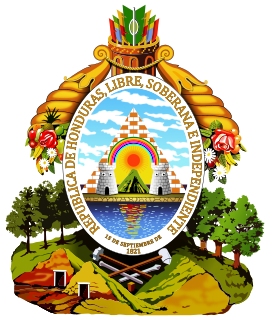A general election (Spanish : Elecciones generales de Honduras de 1932) was held in Honduras on 28 October 1932. Voters went to the polls to elect a new President of the Republic and a new Congress.

Spanish or Castilian is a Romance language that originated in the Castile region of Spain and today has hundreds of millions of native speakers in the Americas and Spain. It is a global language and the world's second-most spoken native language, after Mandarin Chinese.

Honduras, officially the Republic of Honduras, is a country in Central America. In the past, it was sometimes referred to as "Spanish Honduras" to differentiate it from British Honduras, which later became modern-day Belize. The republic of Honduras is bordered to the west by Guatemala, to the southwest by El Salvador, to the southeast by Nicaragua, to the south by the Pacific Ocean at the Gulf of Fonseca, and to the north by the Gulf of Honduras, a large inlet of the Caribbean Sea.
Contents
“President Vicente Mejía Colindres resisted pressure from his own party to manipulate the results to favor the Liberal Party of Honduras candidate, Angel Zúñiga Huete. As a result, the National Party of Honduras candidate, Tiburcio Carías Andino, won the election by a margin of some 20,000 votes”. [1]

Vicente Mejía Colindres was President of Honduras between 16 September and 5 October 1919; and again between 1 February 1929 and 1 February 1933.

The Liberal Party of Honduras is a centre-right liberal political party in Honduras that was founded in 1891. The party is a member of the Liberal International. The PLH is identified with the color red and white, as the flag Francisco Morazan used in most of his military campaigns during time of the Central American Federal Republic.

The National Party of Honduras is a political party in Honduras founded on February 27, 1902, by Manuel Bonilla Chirinos. Historically it has been one of the two most influential parties in the country. The party's platform is based on Christian humanist doctrine, and its five main principles are common wealth, dignity of the human person, equality, solidarity and subsidiarity.


